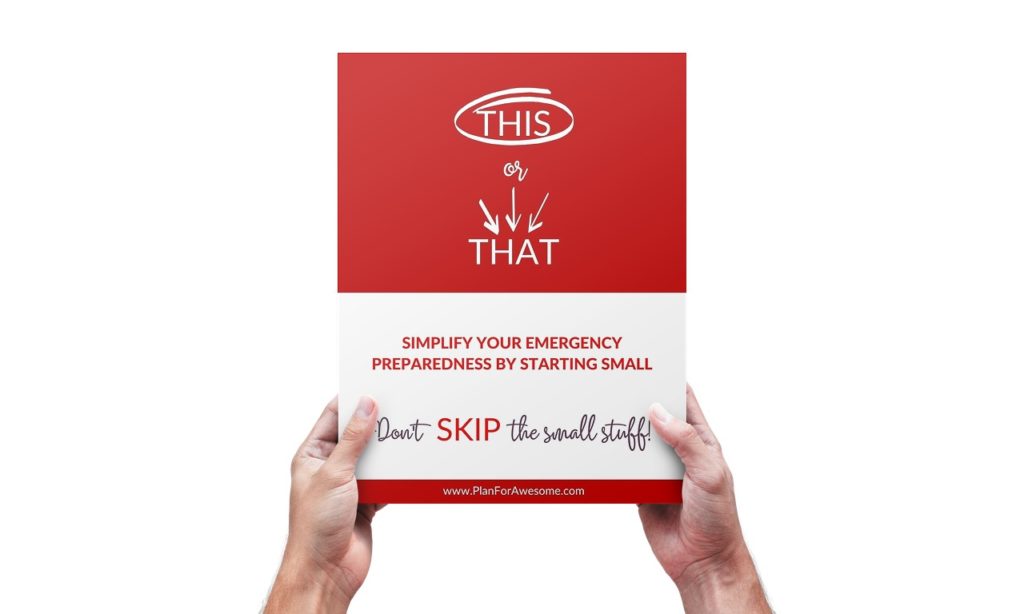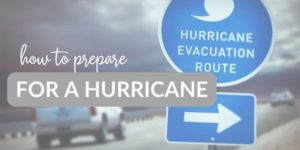
The ultimate guide to Prepare for a Hurricane
Do you know what it takes to prepare for a hurricane? Learn what to do before a hurricane, how to prepare for evacuation and get a hurricane preparedness list
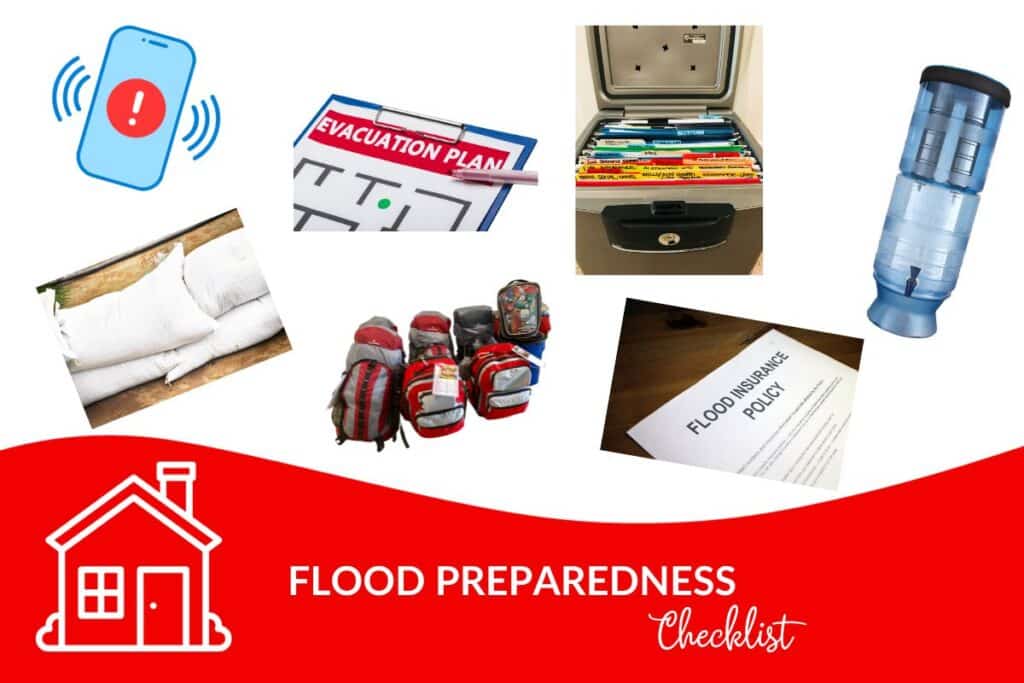
**This post contains affiliate links, which means if you click on a link and make a purchase, I may make a small commission at no extra cost to you.
Did you know that floods are the most common natural disaster? According to FEMA, floods are also the most damaging natural disaster and every state is at risk.
So whether you live in a designated flood zone or not, you need to know how to prepare for a flood emergency. Keep reading and I’ll walk you through the 5 important ways you can protect your home and family from a potentially scary situation.
Floods can be so incrediby devastating. Just 1 inch of water can cost up to $25,000 to repair! Seems unbelievable, right? If you don’t believe me, FloodSmart.gov has an estimate calculator you can check out.
One of the best things you can do to protect yourself and your home is to purchase a flood insurance policy. This will cut down on your out-of-pocket expenses, should you find yourself doing damage repair. If you already have a policy, now is a great time to re-familiarize yourself of the details and make coverage adjustments.
Take pictures of any valuable possessions (and upgrades) around your home. This will serve two purposes:
In addition to being financially prepared, having a family plan will help everyone feel a lot more confident that they’ll know what to do if your home is threatened by rising water.
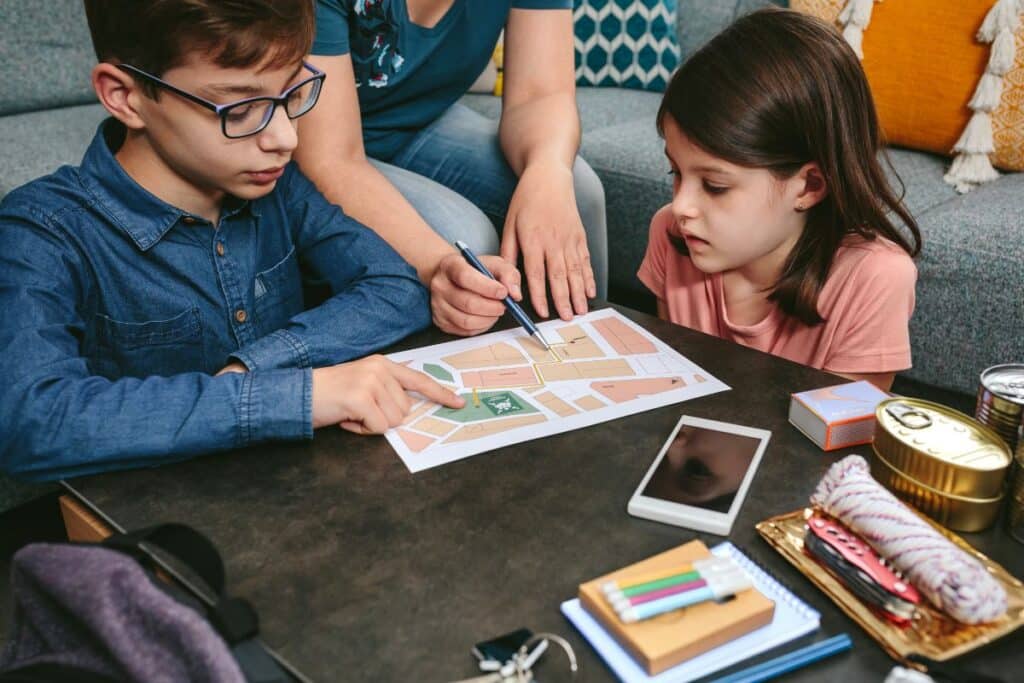
Some of these tasks are flood prevention methods and others are things you can do when flooding is imminent. I’ll break it down into Before, During and After to keep things simplified.
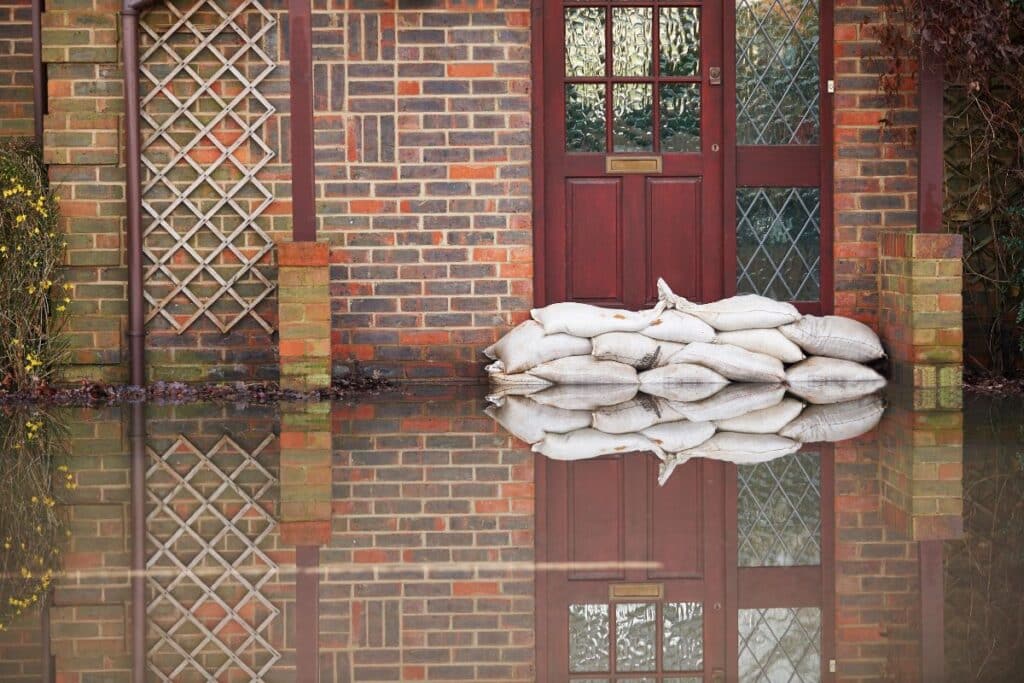
If you do happen to find yourself in a flood situation, remember that the physical safety of your people and pets comes first. Things can be replaced for the most part.
It is imperative that you stay tuned in to what your local first responders and public officials are recommending. We’ve all seen the news stories of people who chose to ignore those recommendations; they put so many lives at risk.
Here are a few tips and resources to help you stay safe:
The 5 main ways to prepare for a flood:
If you’re feeling overwhelmed or like you don’t have time to do any of this, pick ONE thing from this post and get it done. Purchase one of the items mentioned, look up your nearest evacuation shelter…start with one thing. And then maybe next week (or month) do one more thing.
Every little step counts when it comes to being prepared for a natural disaster!

Do you know what it takes to prepare for a hurricane? Learn what to do before a hurricane, how to prepare for evacuation and get a hurricane preparedness list
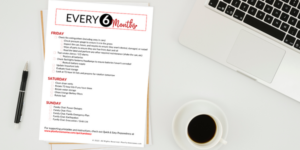
Why you should schedule an emergency preparedness weekend every 6 months, and what you should be doing, reviewing, rotating, and maintaining. Free printable checklist!

Planned or unplanned, a power outage is something you can prepare for ahead of time. Here are somethings you can do to make a power outage less stressful.
